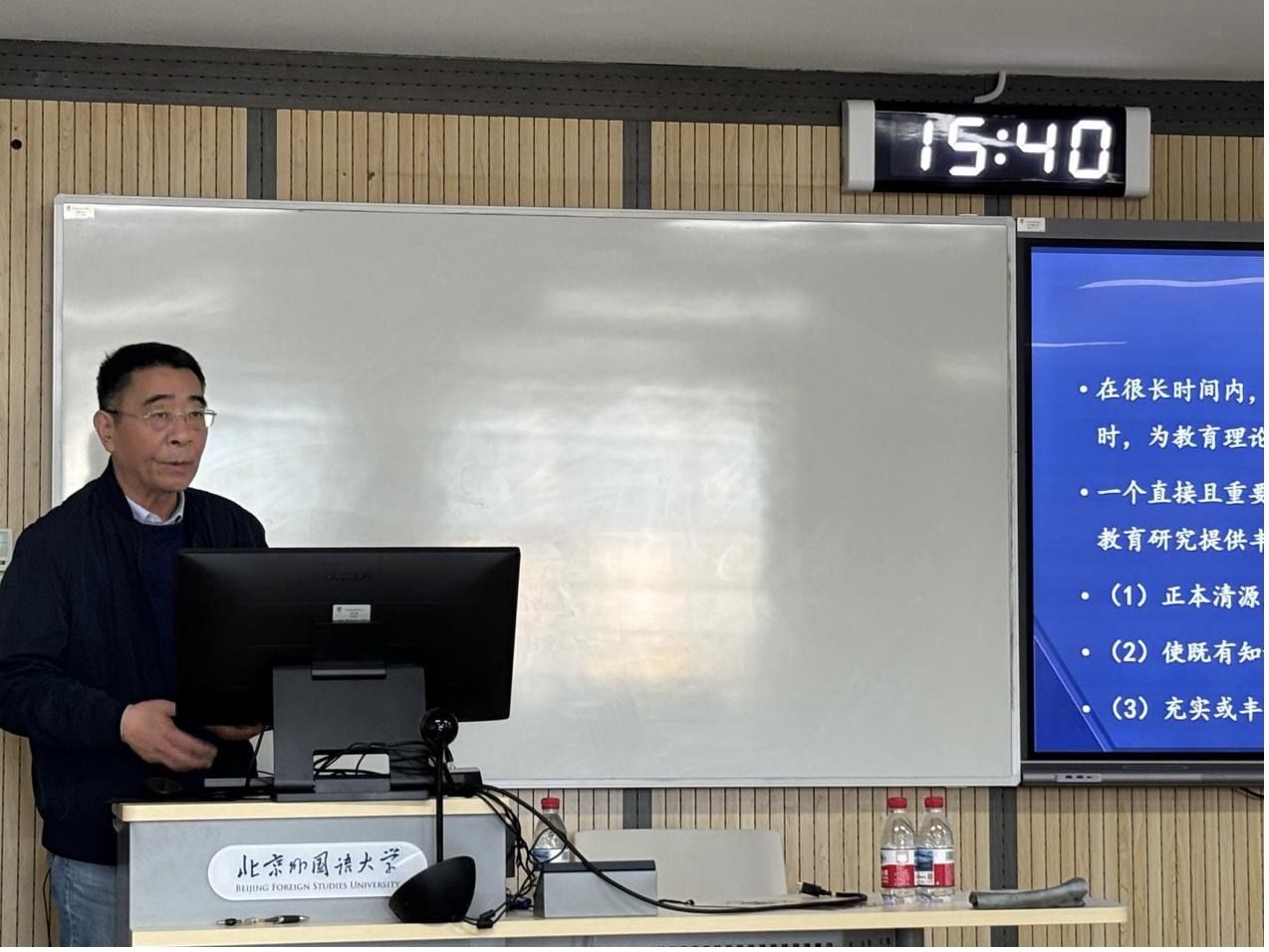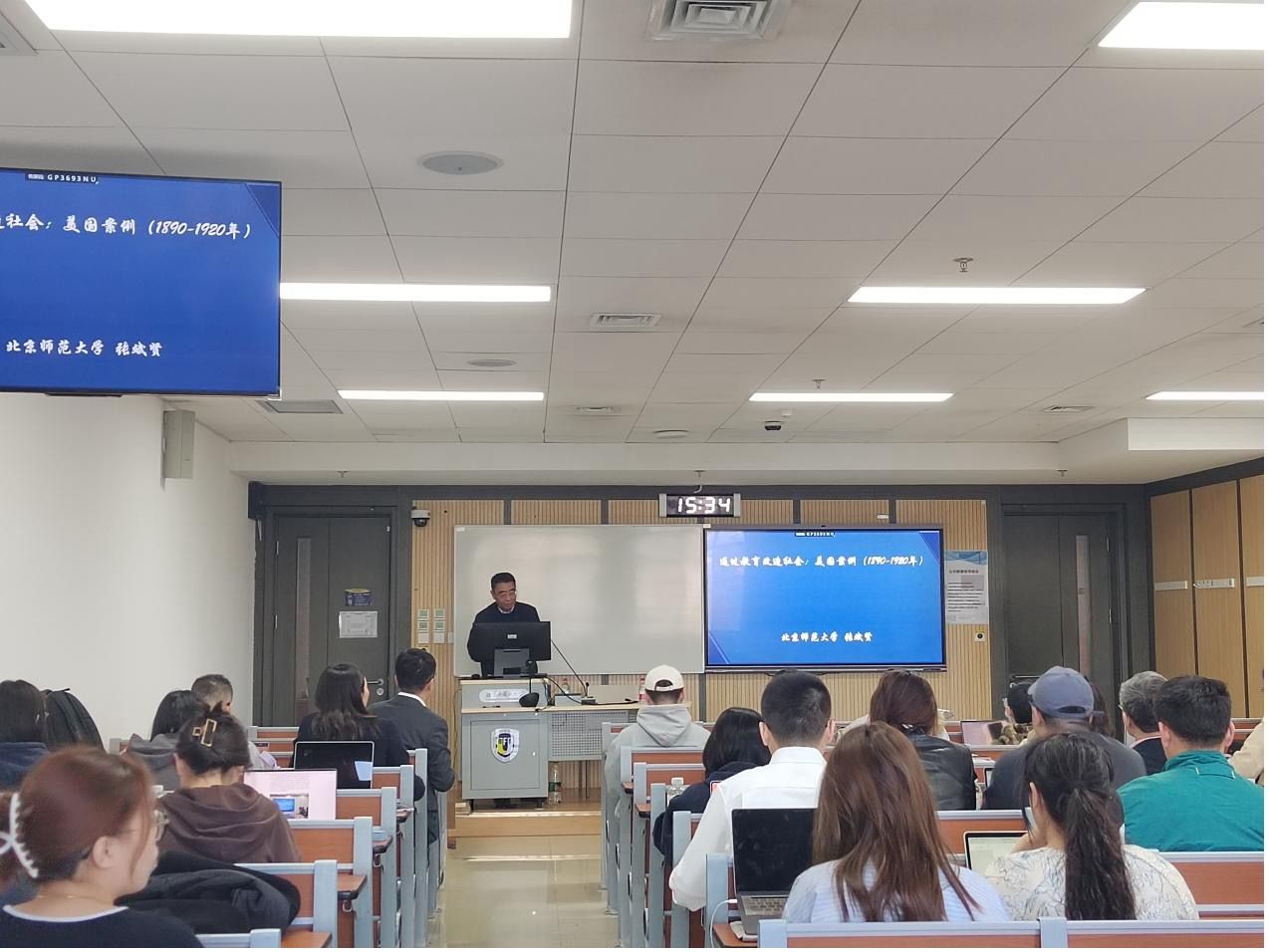On the afternoon of March 19, 2025, Professor Binxian Zhang, a Distinguished Professor of the "Changjiang Scholars" Program of the Ministry of Education, a Leading Talent in Philosophy and Social Sciences of the National "Ten Thousand Talents Program", a National-level Teaching Master, Director of the History of Education Branch of the China Education Association, Secretary-General of the National Steering Committee for Professional Degree Graduate Education in Education, and Deputy Director of the Teaching Steering Committee for Higher Education Institutions (Education Category) of the Ministry of Education, visited the "BFSU Global Education Forum" to deliver an academic lecture to faculty and students of the Graduate School of Education. Titled "Transforming Society through Education: The American Case (1890–1920)", the lecture was chaired by Professor Yuan Dayong, Executive Dean of the School.

In his lecture, Professor Binxian Zhang conducted an in-depth analysis of how educational reforms in the United States from the late 19th to early 20th century effectively promoted the resolution of social problems and social change. Based on historical investigations, he explored the social functions of education in modern society and further reflected on the relationship between education and social development. Summarizing this "American case" of social transformation through education, Professor Zhang emphasized that education has never been a passive social factor but an active and dynamic force for social reform. The proactive exertion of education's social functions represents the most "economical" and "prudent" social investment. He further noted that realizing education's dynamic role depends not only on sufficient social and historical conditions but also on the whole society's positive beliefs in human nature, education, and social progress, as well as on broad social mobilization, social consensus, and a reasonable institutional environment.

During the Q&A session, faculty and students actively participated in the discussion, raising questions on the historical implications of U.S. educational reform experience and the relationship between education and society. By analyzing the case of U.S. educational reform, this lecture deeply explored the complex relationship between social movements and educational changes, enabling faculty and students to gain a clearer understanding of the historical context and internal logic of U.S. educational reforms. It also provided new perspectives for future research and teaching.